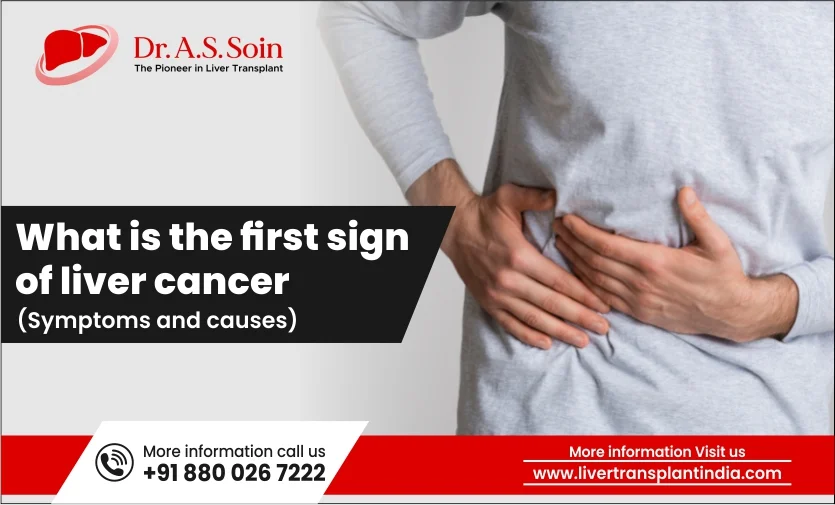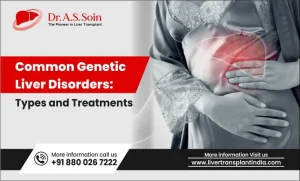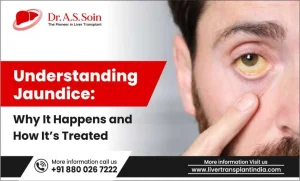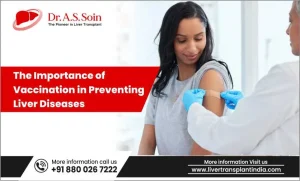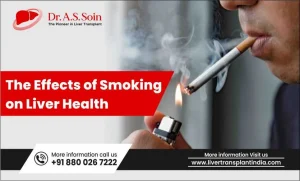The liver is an essential organ responsible for maintaining overall health. It processes nutrients, aids in digestion, and detoxifies the blood. However, the liver is also vulnerable to serious conditions like liver cancer, which often remains undetected in its early stages. Early diagnosis can significantly impact outcomes, making it critical to understand the causes and symptoms of liver cancer.
If you or someone you care about is concerned about liver health, know that help is available. Under the guidance of the renowned Dr. A.S. Soin, Liver Transplant India offers advanced treatment for liver diseases, including liver cancer, ensuring optimal care and outcomes for patients.
Let’s explore the key signs, causes, and other important aspects of this disease.
Table of Contents
ToggleUnderstanding Liver Cancer
Liver cancer occurs when liver cells grow uncontrollably, forming a mass or tumor. It can originate in the liver (primary liver cancer) or spread to the liver from other parts of the body (secondary liver cancer). The most common type of primary liver cancer is hepatocellular carcinoma (HCC).
The liver’s regenerative ability can mask early signs of cancer. Recognizing the symptoms and causes early is crucial for timely intervention.
Initial Symptoms of Liver Cancer
Early signs of liver cancer can be subtle and easily overlooked. Key symptoms include:
- Persistent Fatigue: Chronic fatigue that doesn’t improve with rest may indicate an underlying issue.
- Unexplained Weight Loss: Sudden and unintentional weight loss is often an early indicator of cancer.
- Loss of Appetite: A lack of interest in food, accompanied by nausea or a feeling of fullness, can be an early sign.
- Upper Right Abdominal Pain: Discomfort or dull pain in this area may signal a tumor or an enlarged liver.
- Jaundice: Yellowing of the skin or eyes due to elevated bilirubin levels may appear in advanced stages but can also occur early.
If you experience these symptoms, consult a liver specialist promptly. Consider visiting Liver Transplant India, a leading liver cancer hospital in Delhi, for a thorough evaluation.
Additional Symptoms
As liver cancer progresses, other symptoms may arise, such as:
- Abdominal Swelling: Often caused by fluid buildup (ascites).
- Pale Stools or Dark Urine: Signs of impaired liver function.
- Itchy Skin: A symptom commonly associated with liver disease.
- Fever: Unexplained fevers can occur in some cases.
These symptoms can resemble other liver conditions, making accurate diagnosis essential. Routine health check-ups and liver function tests can save lives.
Causes and Risk Factors
Understanding the risk factors can help in prevention and early detection.
Chronic Liver Diseases
Hepatitis B and C infections are major causes of liver cancer. Chronic inflammation and liver damage from these conditions significantly increase cancer risk.
Cirrhosis
Liver scarring (cirrhosis) due to chronic liver diseases, excessive alcohol use, or fatty liver disease is a leading risk factor.
Lifestyle Factors
Obesity and poor nutrition can lead to non-alcoholic fatty liver disease, which raises liver cancer risk. Alcohol abuse is another critical factor.
Family History and Genetics
A family history of liver disease or cancer increases susceptibility, emphasizing the importance of genetic screening and early monitoring.
Exposure to Toxins
Long-term exposure to industrial chemicals or aflatoxins (toxins produced by certain molds in food) can elevate the risk of liver cancer.
Diagnosing Liver Cancer
Early detection often involves:
- Imaging Tests: MRI, CT scans, or ultrasounds to identify liver abnormalities.
- Blood Tests: Elevated alpha-fetoprotein (AFP) levels may suggest liver cancer.
- Biopsy: A sample of liver tissue may be examined to confirm malignancy.
Expert care, like that provided by Liver Transplant India, can ease the diagnostic process.
Treatment Options
Treatment depends on the size, stage, and patient’s overall health:
Surgery
For early-stage cancer, surgical removal of the tumor (hepatectomy) may be possible, provided the surrounding liver tissue is healthy.
Liver Transplant
In cases of severe liver damage, a liver transplant may be the best option. Dr. A.S. Soin and his team have successfully performed numerous transplants, restoring health and hope to patients.
Ablative Therapies
Techniques like radiofrequency ablation (RFA) and microwave ablation (MWA) destroy cancer cells without surgery, making them ideal for patients ineligible for surgical procedures.
Targeted Therapies
Targeted treatments aim to slow cancer progression and improve quality of life, particularly in advanced cases.
A personalized treatment plan is essential. Contact Liver Transplant India for expert guidance tailored to your needs.
Prevention Tips
While not all liver cancer cases can be prevented, lifestyle changes can reduce risk:
- Vaccination: Protect against hepatitis B with vaccination.
- Limit Alcohol Consumption: Reduce or avoid alcohol to preserve liver health.
- Maintain a Healthy Weight: Prevent obesity-related liver disease.
- Regular Screening: Early detection through routine check-ups can be lifesaving, especially for those at higher risk.
Conclusion
A liver cancer diagnosis can be daunting, but early detection and expert care make a significant difference. Understanding symptoms, causes, and treatment options empowers you to take control of your health.
If you suspect liver issues, don’t delay. Schedule a consultation at Liver Transplant India, where compassionate care and cutting-edge treatments are our priority. Your health is your greatest asset—let us help you protect it.
FAQs
Can liver cancer develop without underlying liver disease?
Yes, although it is more common in individuals with chronic liver conditions like hepatitis or cirrhosis, it can occur in otherwise healthy individuals.
Does early-stage liver cancer always present symptoms?
No, liver cancer often shows no symptoms in the early stages. Regular screenings are critical for at-risk individuals.
Is liver cancer more common in men or women?
Liver cancer is more prevalent in men, possibly due to lifestyle and hormonal differences.
Do benign liver tumors increase cancer risk?
Most benign growths are not cancerous, but some, like hepatic adenomas, may develop into cancer if untreated.
How quickly does liver cancer progress?
The progression rate varies based on the type, stage, and individual factors. Early detection is key to managing the disease effectively.
Can liver cancer be cured if detected early?
Early detection significantly improves the chances of successful treatment. Options such as surgery, liver transplant, or localized ablative therapies can potentially cure liver cancer in its early stages.
Are there specific dietary recommendations for liver cancer prevention?
A healthy diet rich in fruits, vegetables, whole grains, and lean proteins can support liver health. Avoiding processed foods, high-sugar items, and excessive alcohol can also reduce the risk of liver disease and cancer.
Is liver cancer contagious?
No, liver cancer is not contagious. However, underlying conditions that increase liver cancer risk, such as hepatitis B or C, can be transmitted. Vaccination and proper medical care can prevent these infections.
What is the role of exercise in liver cancer prevention?
Regular physical activity helps maintain a healthy weight, reduces the risk of fatty liver disease, and supports overall liver health. This can indirectly lower the risk of liver cancer.
Can alternative therapies or supplements help treat liver cancer?
No generally alternative therapies do not help treat liver cancer while some alternative therapies may provide symptom relief. Always consult a healthcare professional before using supplements or alternative treatments to ensure they don’t interfere or delay the standard care.

